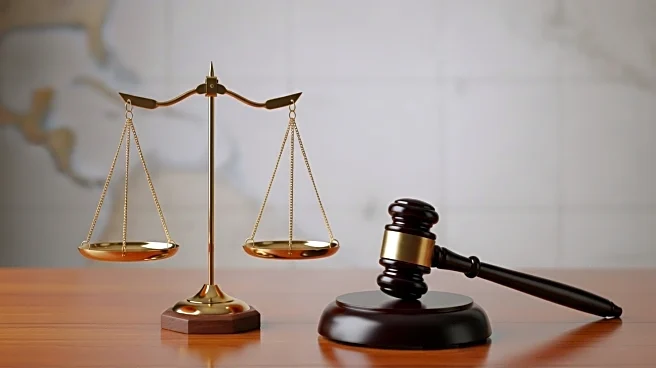What's Happening?
President Donald Trump has declared drug cartels operating in the Caribbean as unlawful combatants, framing the U.S. campaign against them as a 'non-international armed conflict.' This declaration follows recent U.S. military strikes on boats suspected of drug smuggling, with at least two operations targeting vessels from Venezuela. The Pentagon briefed Congress on this new designation, which has raised questions about the legal framework and the role of Congress in authorizing such military actions. The administration's move has been met with skepticism from lawmakers and human rights groups, who question the legality of using military force for law enforcement purposes.
Why It's Important?
The designation of drug cartels as unlawful combatants marks a significant shift in U.S. policy, potentially expanding the scope of military operations in the region. This move could have far-reaching implications for U.S. foreign policy and military engagement, as it blurs the lines between law enforcement and military action. Critics argue that this could set a precedent for executive overreach, bypassing Congress's authority to declare war. The decision also raises concerns about the potential for increased military involvement in the Caribbean, which could strain diplomatic relations with countries in the region.
What's Next?
The Trump administration's actions are likely to face legal challenges and increased scrutiny from Congress. Lawmakers may push for a clearer legal framework and demand greater oversight of military operations against drug cartels. The administration may also face pressure to justify its actions under international law and address concerns about the potential for civilian casualties. As the situation develops, the U.S. may need to engage in diplomatic efforts to address regional concerns and ensure that military actions do not escalate tensions with neighboring countries.
Beyond the Headlines
The decision to classify drug cartels as unlawful combatants could have long-term implications for U.S. military policy and the legal treatment of non-state actors. This move may influence future administrations' approaches to combating organized crime and terrorism, potentially leading to a broader application of military force in similar contexts. Additionally, the use of military power in law enforcement raises ethical questions about the balance between security and civil liberties, as well as the potential impact on human rights in affected regions.










